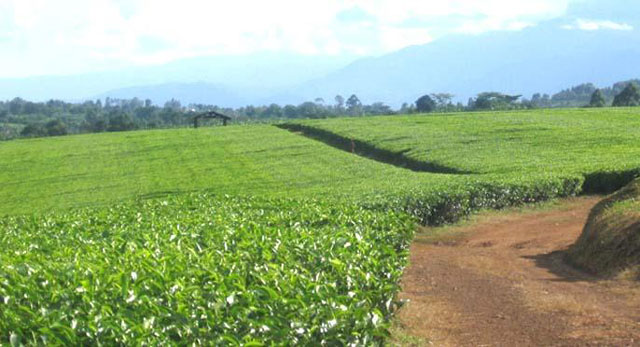
Kampala, Uganda | THE INDEPENDENT | The government has finalized with plans to buy shares worth 23 billion Shillings in Mabale tea factory in Kyenjojo district, according to Finance Minister Matia Kasaija.
Mabale growers tea factory started in 1969, as a government-owned business, but collapsed during the Idi Amin regime. It was later privatized to shareholders that took its complete ownership in 2003. However, the company has been financially struggling, after taking up a loan of 17 billion Shillings from Kenya Commercial Bank – KCB.
According to the factory’s chairman -board of directors Patrick Siisa, the factory pays 41 million Shillings monthly to KCB, an amount that has left its coffers dry with no funds to pay the out-growers, a move that has affected the livelihood of close to 4,000 residents in Kyenjojo district.
The factory has also been forced to process substandard green tea leaf fetching USD 1.50 (about 4,800 Shillings) per kilogram on the global market. But Kasaija says that the government has now agreed to give the factory a financial boost and ensure that its operations are resuscitated.
The deal was sealed during a private meeting held with the factory’s Chairman -Board of Directors Patrick Siisa a week ago. The meeting was also attended by the Minister of Local Government Tom Butime and Uganda Development Corporation -UDC Managing Director Dr Patrick Birungi, among others.
Kasaija says that the government will now give the factory up to 23 billion shillings to clear the outstanding loan and retain a balance to boost its operational costs. The money, which will be drawn from the treasury through Uganda Development Corporation-UDC to the factory, will then be converted into shares for the government.
Uganda Development Corporation is an investment institution established as a wholly-owned government entity with the mandate to facilitate the industrial and economic development of Uganda. Its mission is to make long-term investments in strategic sectors of the economy in order to stimulate industrial and economic development and thus spur private sector growth.
Mabale tea factory chairman Patrick Siisa welcomes the intervention to save the enterprise. He says they are now committed to ensuring that such financial constraints are averted in future.
Troubles for Mabale Tea Factory started after its management acquired a loan of six billion Shillings from Stanbic bank for the purchase of new equipment. The loan was taken on the basis of a presidential pledge of 4 billion Shillings made in 2008, with the hope that money from the presidency would service the loan.
However, the Presidential pledge was never fulfilled.
Siisa notes that the factory, which is owned by 3,000 smallholder tea growers, also pays 800 million shillings’ worth of taxes to the government annually. However, URN has also learnt that during the meeting, Kasaija promised to seek a tax holiday for the factory.
*****
URN
 The Independent Uganda: You get the Truth we Pay the Price
The Independent Uganda: You get the Truth we Pay the Price



